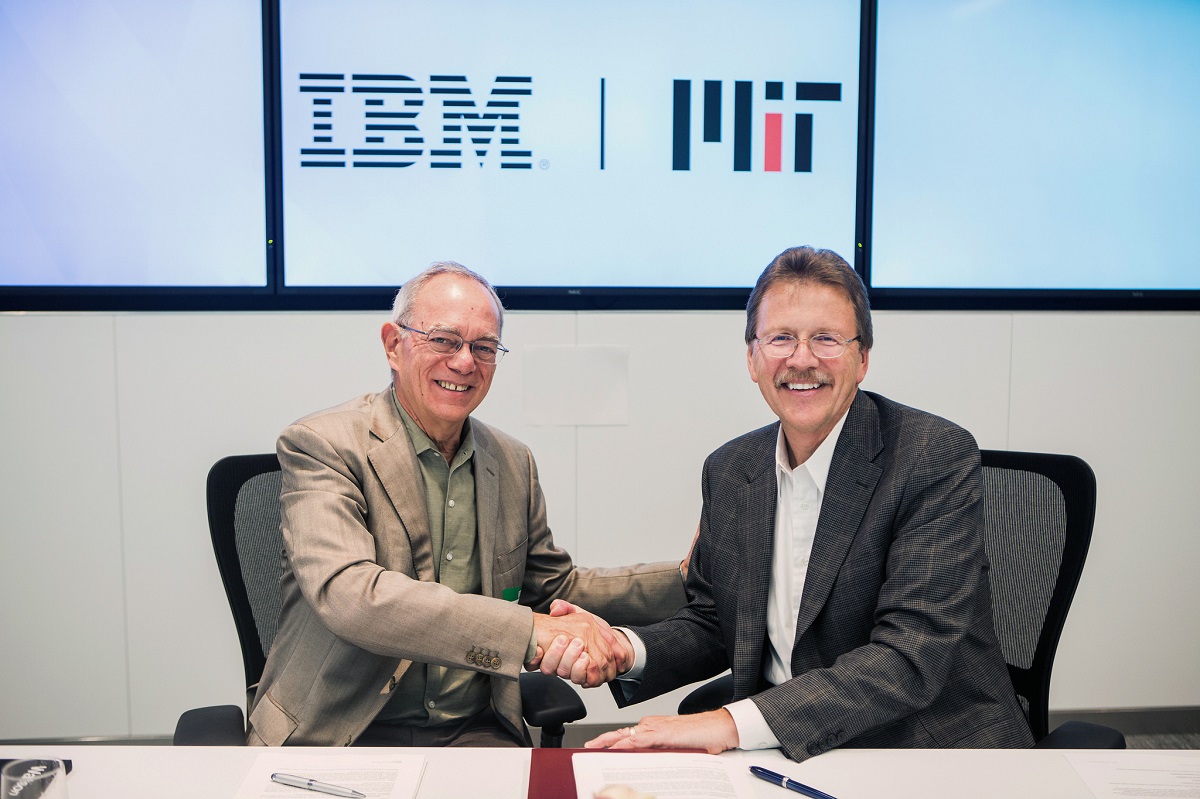Investment continues to flow into artificial intelligence research, especially in key areas such as AI algorithms that promise to move the technology from specialized tasks to broader applications that leverage big data and exploit machine and “continuous” learning capabilities.
With those and other goals in mind—including the societal implications of AI—IBM and the Massachusetts Institute of Technology announced an AI research partnership on Thursday (Sept. 7). Along with critical AI algorithms and related deep learning software, the 10-year, $240 million investment in the new MIT-IBM Watson AI Lab will focus on hardware development and applications such as health care and cyber-security.
IBM and university researchers also will “explore the economic and ethical implications of AI on society,” the partners noted.
The AI lab will be co-chaired by Anatha Chandrakasan, dean of MIT’s School of Engineering, and Dario Gil, vice president of AI at IBM Research. Along with algorithms, the partners will seek proposals from MIT researchers and company scientists on AI physics, applications and “advancing shared prosperity through AI.”

The final category is a nod to growing concerns about the economic impact of AI on labor markets as more tasks are automated.
The partners also stressed they would seek to take AI advances to the next level by encouraging MIT faculty and students to launch startups designed to commercialize technologies developed by the new lab.
The AI lab builds on earlier collaboration between IBM and MIT in cognitive sciences designed to advance research in areas such as machine vision.
IBM’s previous research efforts built around its Watson cognitive computing have so far achieved mixed results. According to a report by the web site statnews.com, a three-year effort to promote the technology for recommending cancer treatments has fallen short of expectations. A cancer specialist who has used it told the web site: “Watson for Oncology is in their toddler stage.”
The report also noted that IBM researchers have yet to publish any scientific papers about clinical outcomes based on the technology. Nevertheless, IBM and MIT said they would continue pursuing “optimum treatment paths for specific patients” along with medical applications such as image analysis and securing private medical data.
Separately, the company also is collaborating with MIT and Harvard University on AI and genomics.
Hence, IBM’s new research partnership with MIT looks like an attempt to go back to the drawing board to focus research on fundamentals such as algorithm development and AI “physics.” The latter category would focus on materials, devices and architectures that would support future approaches to AI model training. Among the current techniques is broader use of neural processing units that are incorporated into chipsets to accelerate the execution of AI algorithms.
IBM also said the partnership is intended to exploit the intersection between machine learning and quantum computing, including new quantum devices and using quantum machines as another way to accelerate machine-learning algorithms.
“Today, it takes an enormous amount of time to train high-performing AI models to sufficient accuracy,” IBM’s Gil noted in a blog post. “For very large models, it can be upwards of weeks of compute time on GPU-enabled clusters.”
Meanwhile, algorithm research will focus on moving beyond specialized tasks such as facial recognition and computer vision to address more complex problems. “Researchers will invent new algorithms that can not only leverage big data when available, but also learn from limited data to augment human intelligence,” the partners said.
Acknowledging growing unease about the societal implications of AI technology, the partners also emphasized they would take a step back to consider the economic impact of AI technology. Among the issues addressed will be the creation of “AI systems that can detect and mitigate human biases,” Gil explained, along with “ensuring that AI systems [complement] worker skills that might be in short supply and exploring how productivity gains will be distributed across firms, workers and consumers.”





























































